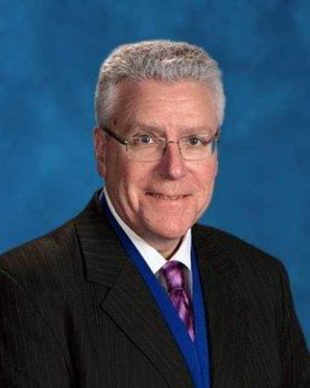By PAULA TRACY, InDepthNH.org
CONCORD – Most of the state’s 276 school districts need financial help keeping the doors open safely during COVID-19 and could need as much as $70 million from the CARES Act state allocation.
Dr. Carl Ladd, executive director of the New Hampshire School Administrators Association, said many districts were expecting, but never received money from FEMA to help with purchases of personal protective equipment, sanitizers, and other needs caused by the COVID-19 pandemic and were holding the initial funding given through the CARES Act with anticipation that they would need more in the fall.
In June, the state announced $33.9 million in CARES Act to the Elementary and Secondary School Relief Fund for K-12 schools, including charter schools with 90 percent to be allocated to districts proportional to the 2019-2020 school year Title 1 Part A allocation.
Ladd told the Legislative Advisory Committee Tuesday that 65 percent of the 276 districts received less than $100,000 in CARES Act allocation and called that “significantly limited, to begin with.”
One of the challenges, he said, is to get a handle on all districts and their expected needs.
Ladd said he has heard from about 25 percent of the districts in the state which have said they need about $17 million, and he can extrapolate that they will all need about $70 million now.
Many districts have opted to provide hybrid learning meaning that students spend some of their academic time at home and some at school. Some are providing school daily as normal while others are offering only remote learning from home.
For those that are open, thinking of opening or trying to stay open, the effort should be “trying to make sure they can stay open,” Ladd said. Some are having to take money out of their regular budgets to meet the needs posed by COVID-19.
The $70 million for the whole state does not include any compensatory special education expenses, Ladd said, and that is going to run districts millions of dollars more, depending on the situation.
The list includes technology purchases, safe water stations, dividers, and transportation costs that are becoming astronomical in order to maintain social distancing and school heating and ventilation systems that need to be repaired or replaced in order to provide clean air.
“It’s been an incredibly steep climb to get districts ready (to open) and they are continuing on and they don’t include special education costs,” Ladd said.
In April, Sununu established the bipartisan Legislative Advisory Board to provide the Governor’s Office for Emergency Relief and Recovery “with accountability, transparency, and integrity throughout the process of allocation and disbursement of the CARES Act funding in the state of New Hampshire.”
Taylor Caswell, director of the GOFERR task force, chaired the meeting in which Ladd made the case for more CARES Act Funding. The state has about $200 million left that is unallocated and may have more allocated funds that have not been used.
Ladd asked if the task force to get the entire data picture on school needs and the task force agreed to work on that this week with the expectation they could meet by the end of the week to vote on a proposal for some money.
“The one thing I would ask is that there needs to be some formal way of gathering this kind of data at the state level and ensuring that districts that have expended their funds have a mechanism for asking for additional funds if that is even an option for them,” Ladd stressed.
School administrators around the state are frustrated that they don’t know where to go or what to do for additional funds, he said, “because they have all these unmet COVID-19-related expenses. They are either going to cut programs or go into a deficit situation which nobody wants,” Ladd said.
Mascoma Health Center
The advisory board heard that progress is being made to help bail out Mascoma Health Center in Canaan which is facing severe financial distress due to the pandemic.
The center, which provides medical, dental, and psychological care for thousands of rural residents, based on one’s ability to pay, is facing mounting debt and cash flow concerns. The advisory board also agreed to meet toward the end of the week to try to come up with voting on some CARES Act allocation.
On Monday, the state was able to notify a number of health centers that $100,000 loans made to them at the beginning of the pandemic have been approved to be transferred as a grant, which will help them with the debt load, said state Sen. Chuck Morse, R-Salem.
He said health care centers like Mascoma also have been availed of a third-round of relief funds announced by the governor and there is also a federal fund that they can tap into which has $20 billion.
The $100,000 loan turned into a grant is separate from a $100,000 community development finance authority loan which U.S. Sen. Jeanne Shaheen, D-NH, has been working to help them get around.
Morse said there may be a gap in the funding they need for monthly expenses through the end of the year and he said he would be looking for a dollar figure to bring to the advisory board by the end of the week.
.





